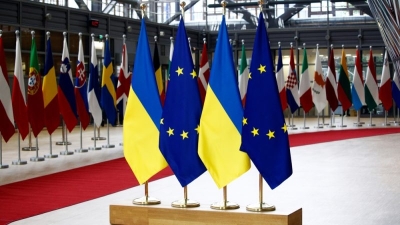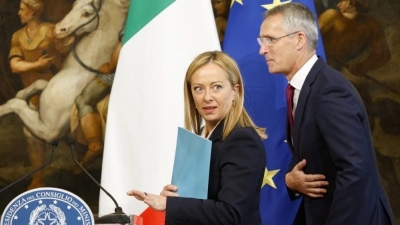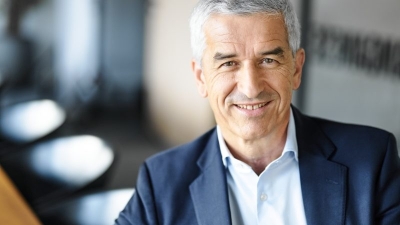The Brief – Brace for mad times ahead

The New Year is a time for looking back and attempting to look forward. Unfortunately, we live in times when the power of the strongest – and the craziest – is replacing the international law embodied by the UN, as imperfect as it was.
It’s not breaking news: We wrote in April 2022 that António Guterres, the UN secretary-general, has the worst job in the world. The UN, which used to be the backbone of world order even during the worst period of the Cold War, is becoming increasingly irrelevant.
As I write this, I vividly remember the crises during the Cold War, such as after the downing of KAL 707 in 1983. It was a period of major tension, but arguably, it resulted from a blunder, not from a decision to create havoc.
Since Vladimir Putin decided to invade Ukraine, he has relished his role of the archetypal villain.
A Russian proverb says bad examples are always contagious, and today, we have smaller leaders who are breaking the international rules Putin-style.
Azerbaijan’s Ilham Aliyev took Karabakh, Venezuela’s Nicolas Maduro is on his way to take from Guyana a territory six times that of Belgium, and Ethiopia’s Abiy Ahmed (once a Nobel Peace Prize laureate) prepares to grab Somaliland.
Possibly, this is part of a master plan. During the Cold War, the Soviet Union was driven by communist ideology. Now, Russia is driven by an anti-Western and anti-liberal discourse intended to rally everyone against the “golden billion”, and it works.
In any case, since 24 February, if a local dictator thinks he is stronger – or crazier than the other stakeholders – he just goes ahead and does it: like Putin, he invades.
In terms of mad dictators, not even the producers of the James Bond series have been able to create a protagonist as detestable as North Korea’s Kim Jong Un. If someone ignites World War Three, there is a high chance that it would be Kim who would have pressed the nuclear button first.
Israel is reputed to be a democracy but it has a far-right government, and international law, law of war, and humanitarian law mean little, if nothing, in the context of its military action in Gaza.
There is no protection for those who do not participate in hostilities, such as civilians, and the humanitarian disaster is unfolding while highlighting international powerlessness.
The only thing preventing a civilisational war from exploding in the context of the Gaza conflict is that Iran’s religious leaders fear the collapse of their regime if they openly attack Israel via Hezbollah in Lebanon.
Enter the Islamic State, whose agenda is precisely total chaos. By striking inside Iran, ISIS is reaching at least three major goals: It is hitting once again at the loathed Shi’a Iran, it is reminding the world it still exists, and it is creating the chaos it needs to flourish again.
Raging wars in the Middle East and in Ukraine provide a suitable smokescreen for China to invade Taiwan – something that will happen sooner or later, in any case, in the best circumstances and timing chosen by Beijing. The only alternative is if Taiwan joins mainland China, only to avoid a bloody war.
The fear of mutually assured destruction (MAD) kept the world safe during the Cold War. Looking back, the leaders at that time were no angels, but they played by the rules.
But the fear of nuclear war will not stop Putin.
Today, it is accepted that conventional war could be fought despite the nuclear risk. MAD is no longer a deterrent.
We usually end our commentaries by asking what it all means for the EU. It means, of course, difficult times because the EU is not a real geopolitical player and until it implements major internal reforms, it will remain the object, not the subject, of world politics.
The worst risk for our union would be peace in Ukraine on Putin’s terms. Such a peace would be illusory and only a stepping stone toward another invasion, this time of EU territory as well.
The assumption that we are facing a predictable adversary should no longer apply. We live in a world without rules, and at this moment, we have a preposterous enemy who despises us because he thinks we are weak, cowardly, and naive.
Unfortunately, the announced defection of Charles Michel from his post as European Council president adds to the impression that our leaders are selfish, lack responsibility, and underestimate the historical challenges.
On the other hand, the European elections in June are a chance to elect leaders who would command our esteem — and the respect of Europe’s enemies.
The Roundup
Germany will provide €902 million to Swedish battery maker Northvolt, as the first country to make use of the European Commission’s new subsidy “matching” scheme that allows EU countries to counter foreign subsidies with their own offers.
Belgium’s EU Council presidency will hold a scientific symposium in April on the controversial nutritional labelling of food to “share experiences” on the system, reopening the debate between member states that use it and those opposing its adoption at the EU level.
While only around a third of the world’s rivers remain free-flowing, according to the campaign group International Rivers, the situation is worse in Europe, where the number of ‘wild’ or free-flowing rivers continue to dwindle.
Ireland’s main nursing organisation has slammed the Irish government after hospitals finished the year with overcrowding, long delays, and inadequate bed space, citing chronic underfunding and unsafe staffing levels.
The European Union should form its own combined army that could play a role in peacekeeping and preventing conflict, Italian Foreign Minister Antonio Tajani has said.
Look out for…
- Commission President Ursula von der Leyen delivers speech at New Year’s reception of Chamber of Commerce for the Elbe-Weser region on Tuesday.
- Informal meeting of employment and social affairs ministers Wednesday-Friday.



